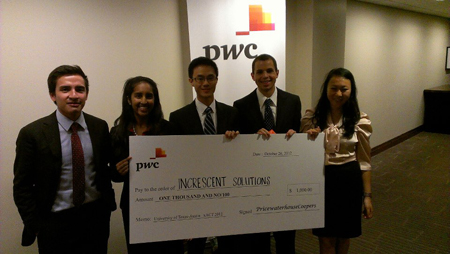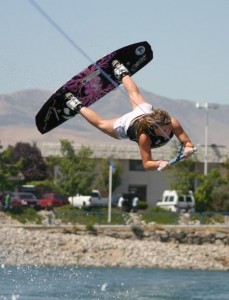 Marketing guru, Angie Lee, BHP ’99, has led marketing strategy for some very different types of organizations from Teach for America, to HarperCollins, IDEO, and now General Assemb.ly. Lee recently sat down with us to talk about her career path. She emphasized the importance of relationships, hard work, and how a willingness to be open to new opportunities has led her to some really interesting roles over the years.
Marketing guru, Angie Lee, BHP ’99, has led marketing strategy for some very different types of organizations from Teach for America, to HarperCollins, IDEO, and now General Assemb.ly. Lee recently sat down with us to talk about her career path. She emphasized the importance of relationships, hard work, and how a willingness to be open to new opportunities has led her to some really interesting roles over the years.
You have worked for a variety of companies and organizations. What are the challenges and rewards of always jumping out of your comfort zone?
For me what is most rewarding is being able to be constantly challenged. By moving, I can focus on my core skill set and my flexibility of being able to put these skills to use in any role. Coming into a new role, I bring a fresh perspective while keeping a sense of what skills I bring to the table. I know that what you experience when you are on the inside working for a company is different than preconceived notions. If I let my perceptions cloud my perspective, I wouldn’t be able to do what I need to do. It is very important to listen and balance the needs of the organization with the skills that you bring. There is never a one size fits all solution, so you have to try things tailored to the organization.
These different opportunities were a result of my willingness to be open to new opportunities. They didn’t come from me seeking them out. They were a result of relationships I had formed in other working partnerships. I stayed open to new opportunities and always focused on doing my best work.
What is General Assemb.ly and what drew you to this new role?
It is a global network of campuses for technology, business and design. We help individuals who want to round out a skill set, learn new skills, and learn from the best instructors. The company was started a year and a half ago and we are in 6 cities right now. We have ambitious plans to be in 10 markets by end of this year. I learned about it at IDEO and was impressed by them, then they approached me and originally I had different plans in mind, but decided to take this opportunity.
What were the other plans you had in mind?
I was strongly considering starting a business of my own, but I realized I could learn what it takes to build a business and to rapidly scale it at General Assemb.ly. I also realized these were really smart people and that I would really enjoy working for them. My coworkers are some of the most talented people I have worked with. I love their curiosity in the world around them. I really appreciate how everyone I work with approaches a problem with a solution in mind, instead of finding a reason why it can’t be done. It is very refreshing.
What are you doing for the company and what do you love about your job?
I am working with a team to lead the charge on marketing and communications strategy. In my role, I am working on brand alignment, awareness of General Assmb.ly, and growing the brand globally. When you rapidly scale a business, you need to align messaging, so I am helping them do that.
What did you find most interesting in working for IDEO, a company which is all about innovation and human-centered design.
My role was to grow business in the New York studio. I was tasked with finding ways of telling our story to new audiences. For the first time I was working in B2B. It was challenging because it required a different mindset. Conversion was different in working B2B rather than B2C. I had to market a service instead of content, which was what I had been doing at Harper Collins. The biggest thing I learned in my role with IDEO was the importance of relationships and networking. Aligning yourself with the right brands and organizations can help you relay your message in a better way, and partnering with the right people allows you spread your message more efficiently.
You have on your LinkedIn profile that you “helped Harper Collins spread ideas,” tell me more about what you mean by that.
In book publishing, you aren’t selling books, you are convincing consumers to latch onto a story, which is very different from selling an actual product. We looked at emotional connections of consumers. I worked in fiction and non-fiction and helped authors from Sarah Palin and Gretchen Ruben to Michael Crichton. In all instances, what compelled consumers to make their purchases were their beliefs and ideas, not the books themselves.
What should someone wanting a career in marketing keep in mind?
Be open to experimentation. There are so many new technologies that come your way that you have to be open to experimentation and failure. When you do fail, think of it as an opportunity for learning. It helps you get deeper perspective as to what might work. Also remember that the power of relationships is important. Always play fair and keep your integrity. You never know when a relationship will come back to hurt or help you.
What stuck with you from your time in BHP?
I didn’t realize at the time the quality of the BHP students. I took for granted how professional, smart and polished the other students were. When I went into the working world, I realized how lucky I was to have been part of that and grow with such talented people. I look at what my classmates have gone on to do and it is amazing all the different directions they have gone in and passions they pursued, it is really inspiring.
What advice do you have for current BHP students?
If I were to do my undergrad over again, I would allow myself to be curious and broader in bigger ways. I thought of myself as defined as a business student. I was interested in graphic design too, and I would have been more open to exploring this as well. In order to be successful you need to have curiosity and interest in other area. That is what differentiates you from other business grads in interviews. Allow yourself to be all of those things and make room to grow. Some of the most successful people I know took non-sequential career paths because they followed their curiosity. It is about enjoying your every day. Now days you can really blend your passions to find a niche for yourself.





